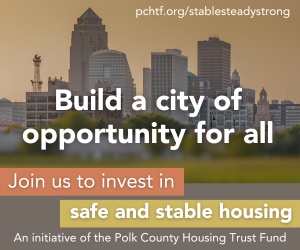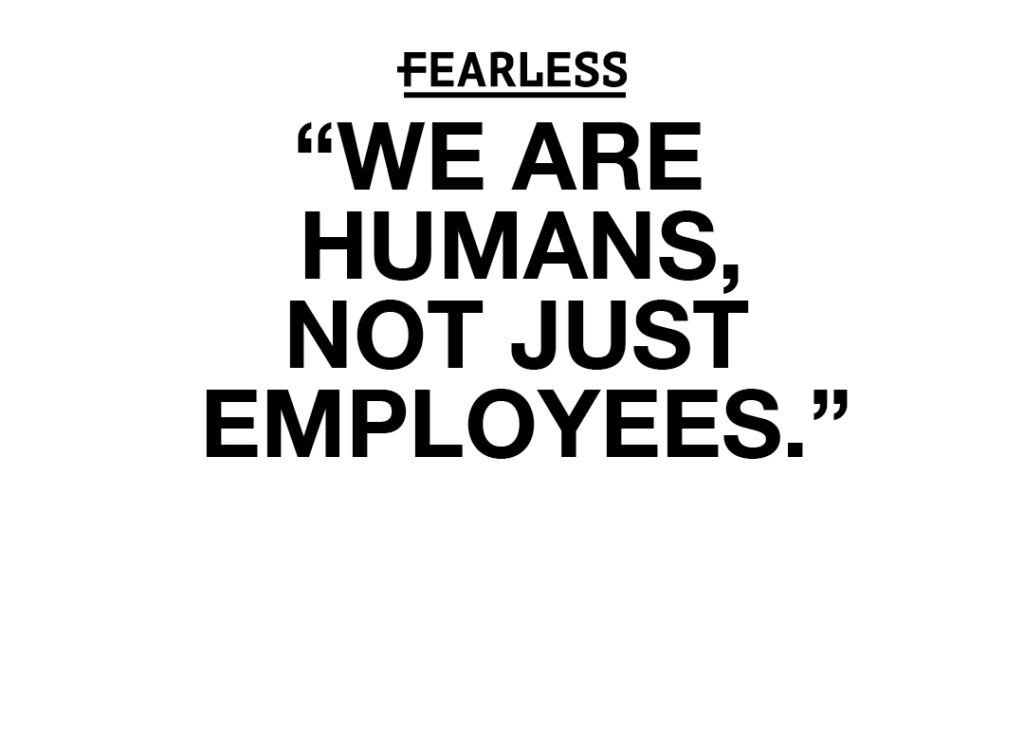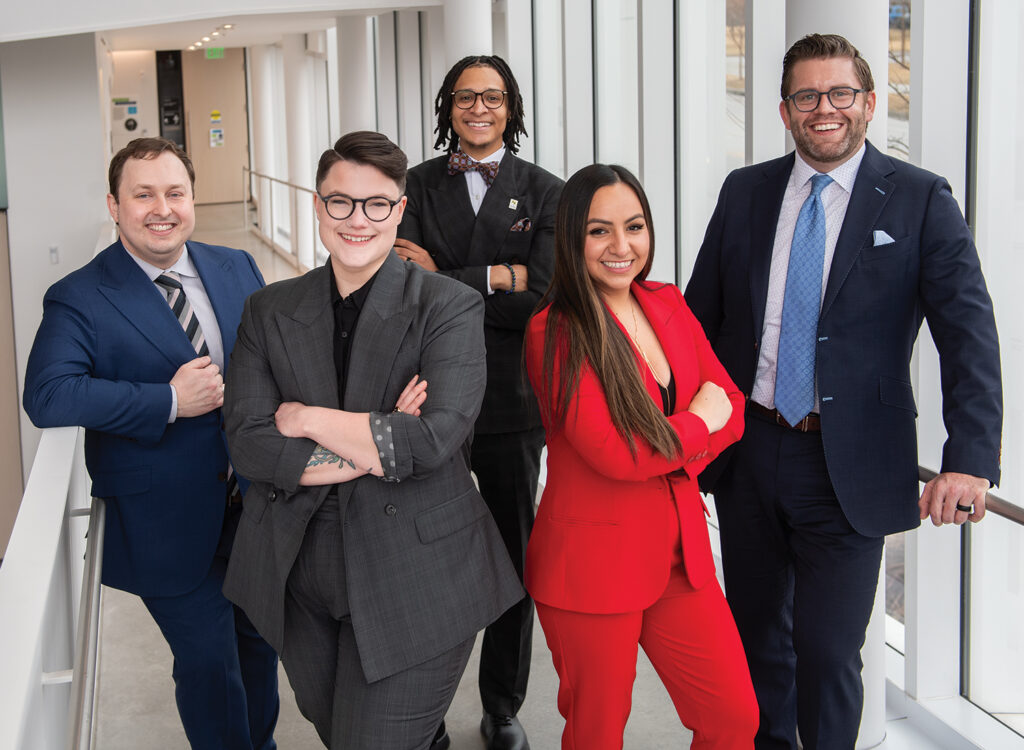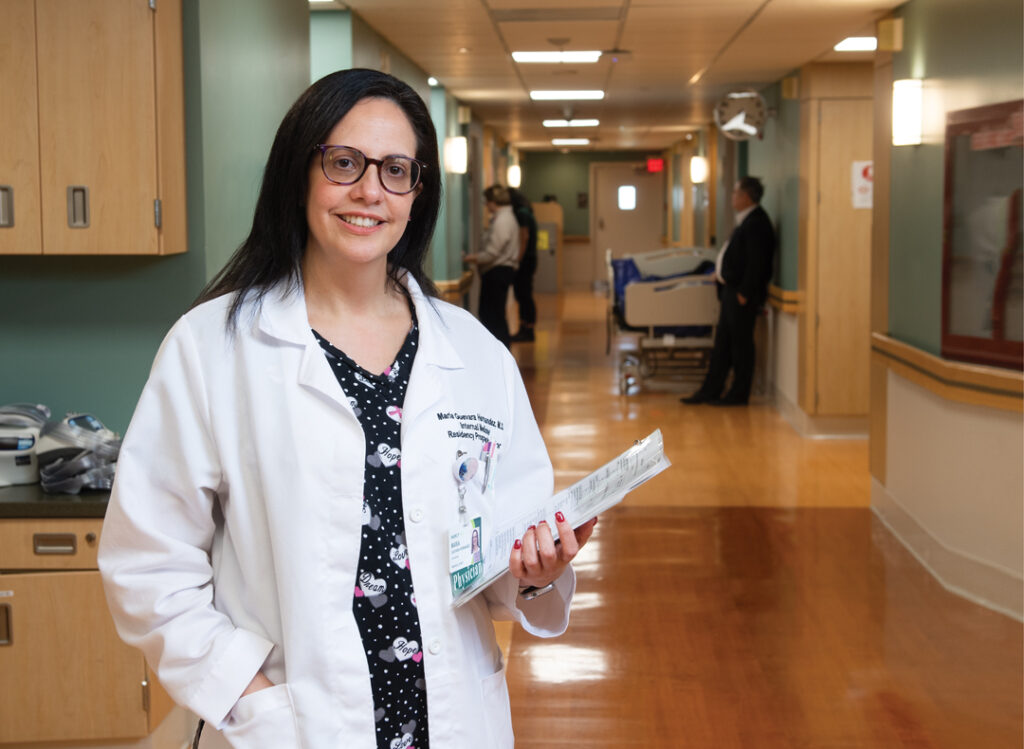Leaders reflect, look forward to 2040
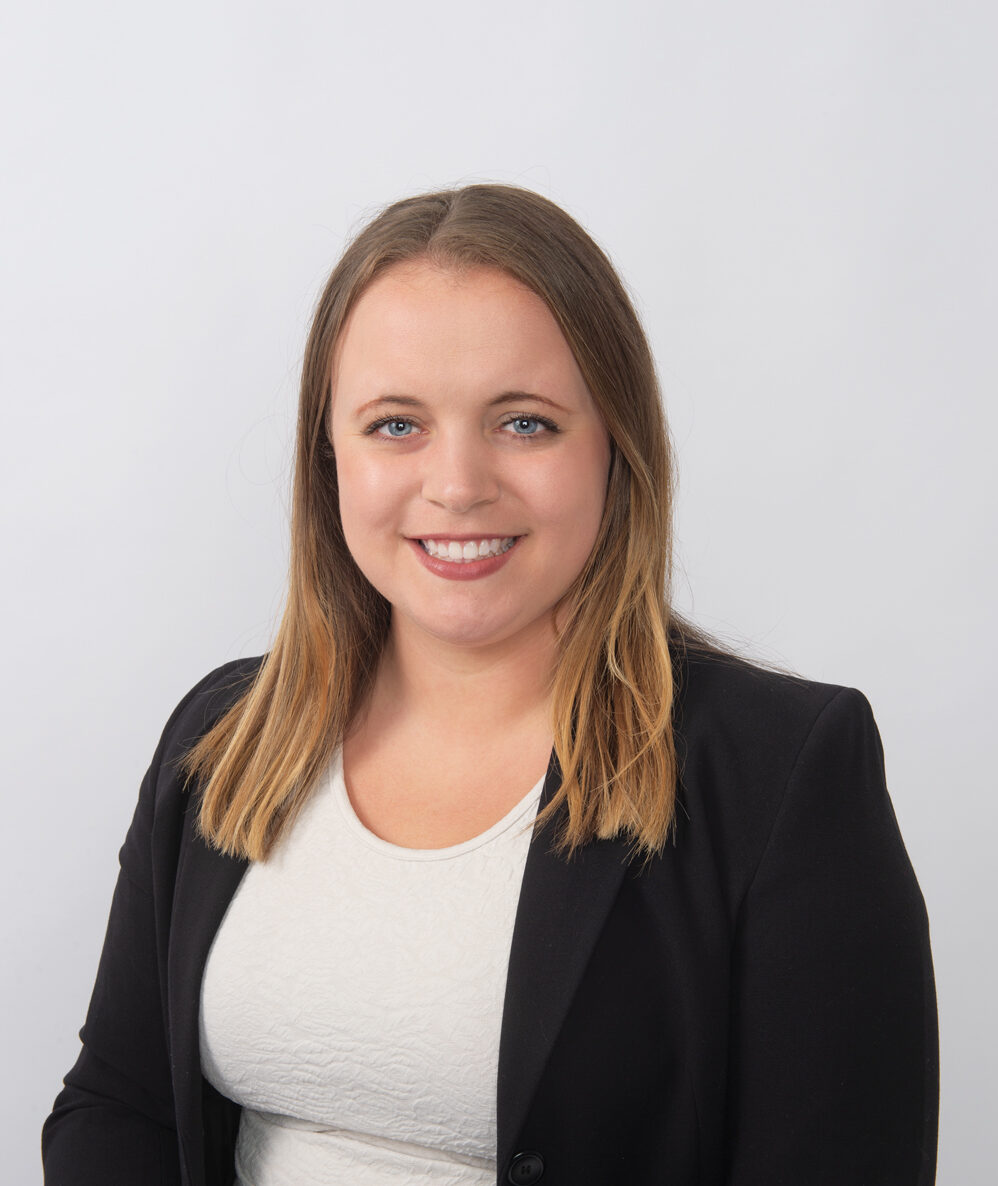
This year, our team at Business Publications Corp. is celebrating 20 years of dsm magazine and 40 years of the Business Record. To celebrate our anniversary, we reached out to a few leaders who have appeared in our coverage over the years to ask them to reflect on how they’ve seen Des Moines improve. To play on our 20|40 anniversary theme, we also asked what they hope the community will have accomplished by 2040. Read on to see their thoughts — and some blast-from-the-past photos.
Their written responses have been edited and condensed for clarity.
– Emily Barske Wood, special projects editor
All photos submitted, unless otherwise noted.
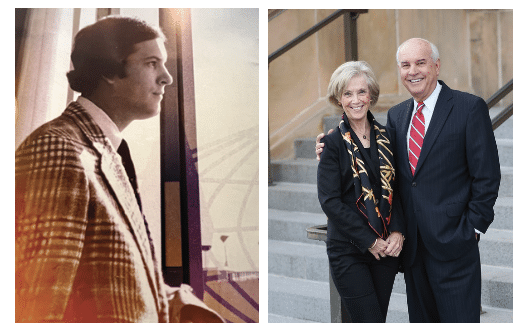
Steve Chapman
Retired president and CEO, Ruan Transportation Management Systems
Looking into the past, what contribution within the past four decades stands out to you for its positive impact in the metro?
While it happened just over four decades ago, I believe the commitment to build the Des Moines Civic Center was key to the success our community has enjoyed. Failing to pass a referendum to finance the project, a small group of business leaders made the decision to raise the money themselves and build the Civic Center. In the past, most every major project was made possible by public funds. However, because of the commitment of those business leaders there became a belief that we could achieve anything we set out to in Greater Des Moines. Additionally, the Civic Center was a major development in bringing people back to downtown Des Moines. Finally, it taught future leaders the importance of investing in our community.
The year is now 2040. What goal (project, initiative, area of focus) would you hope the community has accomplished?
We have experienced the sale of many insurance companies, as well as other businesses, that were headquartered in Greater Des Moines. While we have been fortunate that most have retained many employees here, decisions concerning their growth are made elsewhere. My hope is that we are able to successfully retain the quality companies that are headquartered in Greater Des Moines as well as attract additional companies providing quality jobs for our people. In order for our community to remain vibrant, we must continue to do everything possible to support and attract companies providing quality jobs to our citizens. Years ago it was the low premium tax passed by the Iowa Legislature that became the incentive to grow the insurance industry, which resulted in Des Moines being the second-largest insurance center in the United States and third in the world. We need to challenge ourselves in identifying incentives that will attract companies and employment in the future.
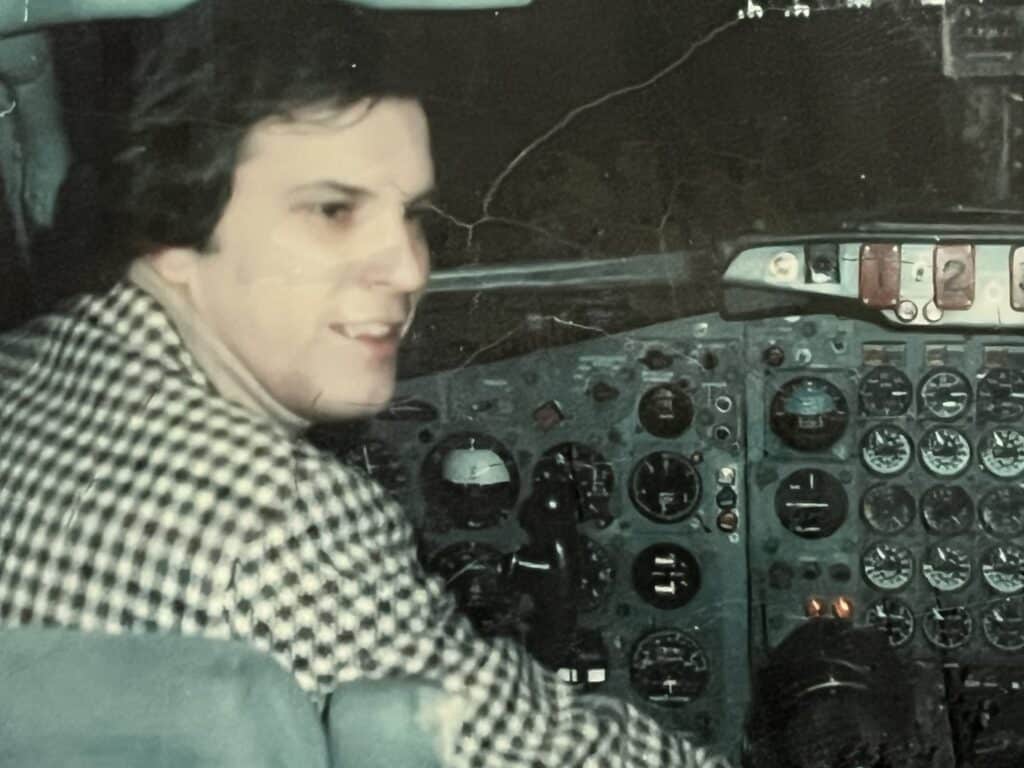
What is one lesson you’ve learned in leadership that others could benefit from?
Throughout my career, I learned from many great leaders that impacted my leadership style. As a result, I believe great leaders possess five attributes that are the difference in their success. Great leaders are available, forward-thinking, accountable, possess great communication skills and are trusted.
Available: Good leaders are always available to those they work with. They are never too busy to listen to the ideas and needs of others.
Forward-thinking: Leaders are constantly thinking ahead. In order to select the best path, they need to know where they are going.
Accountable: In order to be accountable or hold others accountable, you must start with a clear set of expectations (what you expect and why). Stay focused on performance, eliminate excuses and either reinforce or correct your employees’ performance. Do the same things with your own performance and do a self-critique often. It is important to always believe that both you and those you work with can do better.
Communication:You will not be able to lead by example without good communication skills. Good communication skills will allow people to become more comfortable with you.
Trust: For anyone to be effective in a leadership role, they must be trusted. Great leaders are trusted. Without trust, none of what I have talked about can reach its true potential.
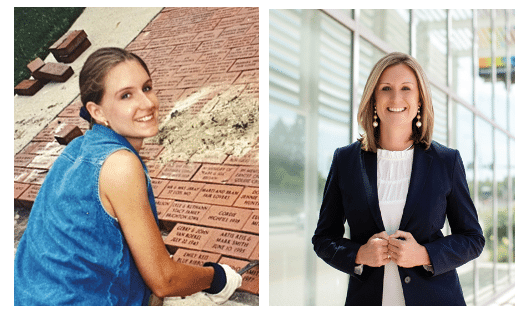
Emily Abbas
Executive vice president – chief consumer banking and marketing officer, Bankers Trust Co.
Looking into the past, what contribution within the past four decades stands out to you for its positive impact in the metro?
Central Iowa is a thriving community for arts, culture and heritage organizations because Steve Zumbach, Connie Wimer, Suku Radia, Johnny Danos and other leaders had a vision of what could be possible with reliable funding and a coordinated approach. In 2004, nine Central Iowa governments (a number that has since increased to 17) rallied around their vision and created Bravo Greater Des Moines and its unique, sustainable funding model supported by local hotel and motel taxes.
Here we are today, looking forward to celebrating Bravo’s 20th anniversary next year and honoring the impact of nearly $60 million being granted to nonprofits that elevate the quality of life for our residents, artists and visitors.
Besides the evident social, cultural and economic impact on our community, the arts have made a significant impact in my personal life, too. Three generations of my family have acted on stage at the Des Moines Community Playhouse, one of more than 100 nonprofits that have been able to expand programming due to Bravo funding. These experiences taught me the value of collaboration, gave me a sense of community and increased my confidence. That’s the impact of the arts and regional collaboration.
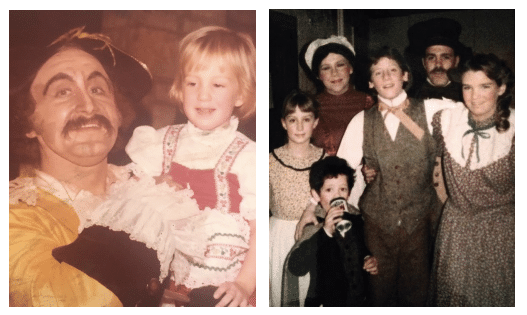
The year is now 2040. What goal (project, initiative, area of focus) would you hope the community has accomplished?
Greater Des Moines is one of the fastest-growing metros in the country and our population is projected to grow another 50% by 2040, according to projections from the American City Business Journals. With that in mind, the area of focus I believe to be critically important is ensuring every individual and family has a safe and affordable place to live.
Nonprofit organizations such as the Polk County Housing Trust Fund, HOME Inc., Habitat for Humanity and other groups are doing great work. However, to truly address the housing shortage, it will take further involvement from the business community, government officials, neighborhood associations and others. Becoming a community that has supportive policies, programs and incentives to create housing for all income levels should be our end goal.
Collaboration and strategic partnerships will be key. I’m proud of how Bankers Trust established a program with HOME Inc. to offer homebuyer education classes to underserved members of our community and recently expanded the partnership to a multi-year commitment. We know homeownership is out of reach for many and want to ensure all who aspire to create generational wealth and family stability have the same opportunities.
What is one lesson you’ve learned in leadership that others could benefit from?
Feedback is a gift – whether it be in-the-moment coaching, which I’m a big proponent of, or the more formal year-end performance reviews, which many of us just wrapped up.
While feedback is a gift, it may not always be presented or received as such. Candid feedback can be difficult to accept, especially early in our careers. I know this from personal experience, as I sometimes felt caught off guard and even defensive if a leader shared feedback that was critical. I now know that they wouldn’t have taken the time if they didn’t believe I had the potential to learn and grow.
Giving feedback can be stressful for some leaders, but I’ve found that if you are truly an advocate for your team members, it makes it a natural part of the relationship and one of the most rewarding parts of helping others explore and reach their full potential.
So as we enter this gift-giving time of year, please consider reminding yourself and your teammates that feedback is a gift. Be generous in giving, gracious in receiving, and embrace that its intention is to help us all succeed.
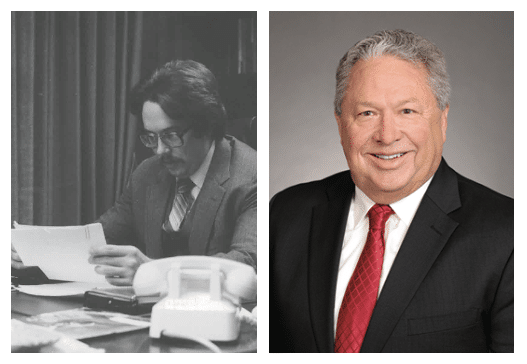
Rick Tollakson
President and CEO, Hubbell Realty Co.
Looking into the past, what contribution within the past four decades stands out to you for its positive impact in the metro?
The Hubbell Extreme Build program has had a huge impact on the lives of thousands of Iowans. Hubbell Realty Co. began the Extreme Builds in 2006 alongside ABC’s “Extreme Makeover: Home Edition” by rebuilding a family’s home after a Christmas Day fire. In 2009, Hubbell built nine homes in nine days for nine families in Des Moines alongside Anawim Housing. In 2013, two new 7,000-square-foot cabins were rebuilt at Easterseals Iowa’s Camp Sunnyside for summer campers of all ages. In 2017, Hubbell demolished and rebuilt a 20,000-square-foot Ronald McDonald House of Central Iowa near Blank Children’s Hospital campus in downtown Des Moines. In 2021, Hubbell returned to Easterseals to build a 13,000-square-foot child development center for kids with and without disabilities from 6 weeks to 5 years old. These builds have been part of my greatest accomplishments.
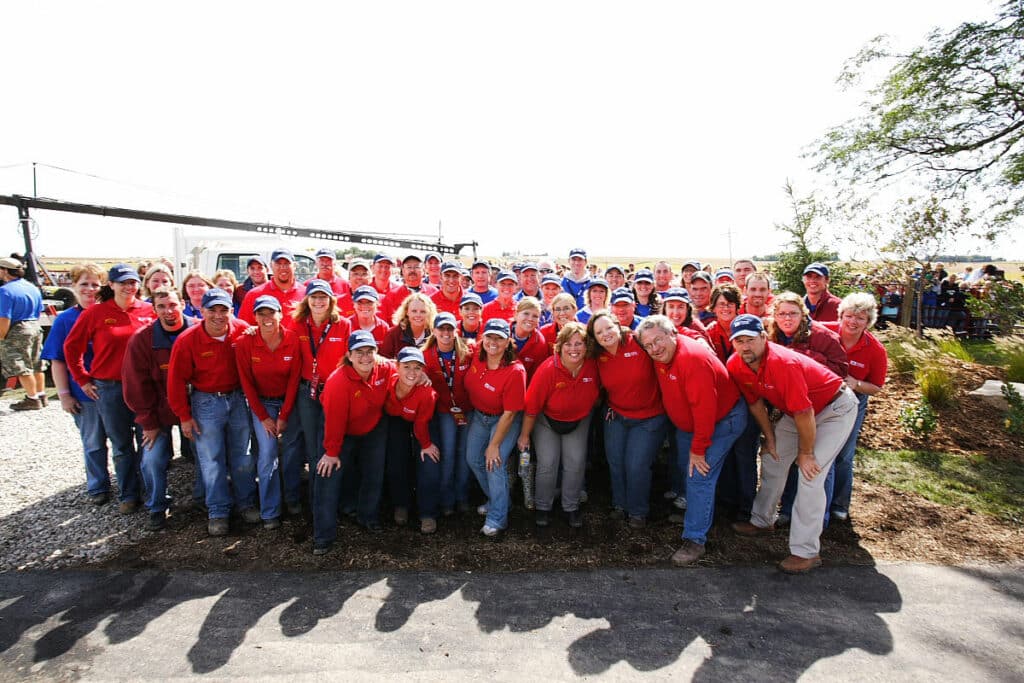
In the 1980s, toward the beginning of my real estate career in the Greater Des Moines area, the downtown core was focused on retail with the building of the Kaleidoscope, anchored by Younkers and JCPenney. With only a handful of skywalk connections, when retailers collapsed and moved out of the downtown core, a resurgence of housing began. Hubbell and many other developers delved into the housing market to find creative ways to bring more vibrancy, foot traffic and people to downtown Des Moines. Even today, through post-pandemic times, the vibrancy of downtown comes from those who live there. Creating downtown as a place to primarily live is one of the most positive impacts I’ve been a part of in my real estate career.
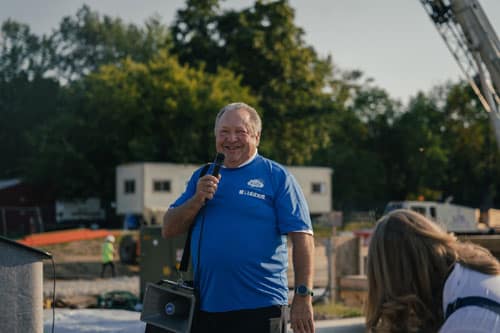
The year is now 2040. What goal (project, initiative, area of focus) would you hope the community has accomplished?
ICON Water Trails should be completed by 2040 and expand well beyond Central Iowa to all of the state. This project will have a huge impact on the vitality and desirability of our communities as well as a major impact on improving water quality.
What is one lesson you’ve learned in leadership that others could benefit from?
Develop a vision that embraces your culture, then live your vision.
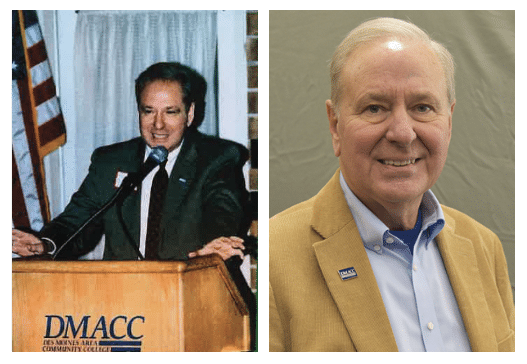
Right: A recent photo of Denson.
Rob Denson
President and CEO, Des Moines Area Community College
Looking into the past, what contribution within the past four decades stands out to you for its positive impact in the metro?
The coming together of business, local government and community leaders to create such a beautiful metro area, with all its amenities, and bringing all surrounding communities into the success, is an outstanding success and impact. The personal, welcoming and collaborative relationships among leaders at all levels is amazing.
The year is now 2040. What goal (project, initiative, area of focus) would you hope the community has accomplished?
We have excelled and will continue our success in business development and support. I believe we need to focus on improving the health and opportunities of all Central Iowa citizens, at a personal and family level, to make sure they have stable housing, access to quality medical care and a quality education, and they can know about and achieve all that Central Iowa has to offer.
What is one lesson you’ve learned in leadership that others could benefit from?
You must be present to succeed and then listen more than you talk. Plus, each day, understand and appreciate how much you have been blessed.
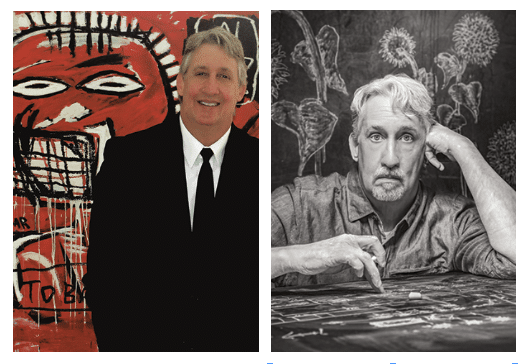
Jeff Fleming
Director emeritus, Des Moines Art Center
Looking into the past, what contribution within the past four decades stands out to you for its positive impact in the metro?
The John and Mary Pappajohn Sculpture Park in downtown Des Moines continues to have a positive impact on the city. It changed the cultural, social, educational and economic landscape of Des Moines. How marvelous to see modern and contemporary art effectively transforming a community. And the park is entirely free and accessible.
The year is now 2040. What goal (project, initiative, area of focus) would you hope the community has accomplished?
Our goal as a community should always be to make economic and social opportunities open and accessible to everyone. And to make information, especially books, readily available to all.
What is one lesson you’ve learned in leadership that others could benefit from?
Advice is more effective if it is tailored to an individual’s needs and current situation. However, I generally believe that one must follow their intuition above all else. If we stopped to think about things too much, the “what-ifs” could be debilitating.
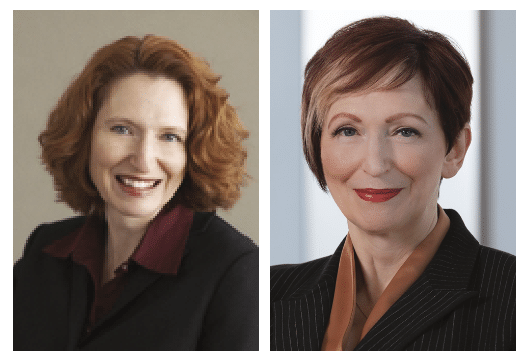
Lori Chesser
Shareholder and immigration department chair, Dentons Davis Brown
Looking into the past, what contribution within the past four decades stands out to you for its positive impact in the metro?
The Des Moines metro has blossomed in so many ways that it’s hard to choose a favorite. I am partial to the contributions made by the diversification of our population. Considering restaurants alone, we have trouble finding comparable variety and quality when visiting all but the biggest cities. More importantly, bringing in perspectives and cultures from other parts of the country and other parts of the world has made us more creative, vibrant and resilient. We still have a road to travel, but the progress is encouraging and gives me hope for a bright future.
The year is now 2040. What goal (project, initiative, area of focus) would you hope the community has accomplished?
We have opened a pro soccer stadium, providing – along with Principal Park – the core to an entertainment and residential district. The area attracts people of all ages and geographies, including visitors, to enjoy the beautiful river views and downtown skyline. The soccer complex will also provide ways to bring various immigrant communities together and will host community events to complement the downtown festivals and performing arts offerings, encouraging inclusivity of all sorts.
What is one lesson you’ve learned in leadership that others could benefit from?
Replace perfectionism with grace. It is easy to think that we – and everyone around us – has to do everything right to achieve our goals. Holding yourself and others to this standard is not only counterproductive, but it sucks the joy out of the endeavor. Your limits and those of others are reality. Errors are lessons. Leaving room for both allows grace to inform your decisions and create a team that can achieve together.
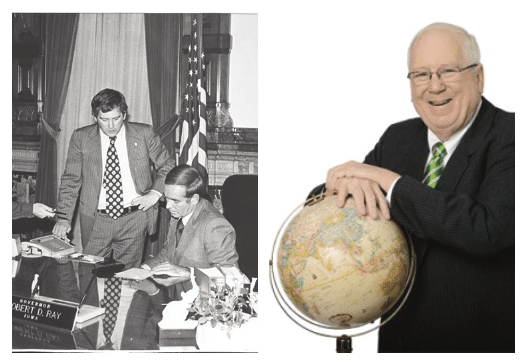
Kenneth Quinn
Ambassador; president emeritus, World Food Prize Foundation
Looking into the past, what contribution within the past four decades stands out to you for its positive impact in the metro?
Between 1979 and 2019, Iowa Gov. Robert Ray’s leadership on behalf of refugees from Southeast Asia, Iowa’s “Citizen Diplomacy” connection to China and President Xi Jinping led by Iowa Gov. Terry Branstad, the vision of John Ruan Sr. and John Ruan III in rescuing and building Dr. Norman Borlaug’s World Food Prize with support of Iowa Gov. Tom Vilsack, all combined to establish Des Moines and Central Iowa’s global reputation as a major agricultural and humanitarian focal point. As president of the World Food Prize, I was pleased to welcome an array of global leaders such as Bill Gates, Kofi Annan, Ban Ki-moon, Tony Blair, Brazil President Lula da Silva and six African presidents, and to transform the former Des Moines Public Library into the Norman Borlaug Hall of Laureates. In this way, Des Moines has become the home of the “Nobel Prize for Food and Agriculture.”
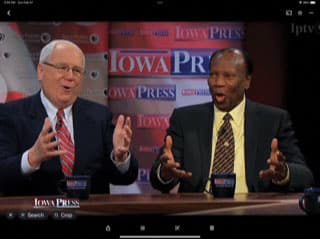
Simon Estes and Quinn singing the “Iowa Corn Song” on Iowa Press in 2014.
The year is now 2040. What goal (project, initiative, area of focus) would you hope the community has accomplished?
In every speech and public presentation I make, I stress the single greatest challenge that humanity will face: Whether we can sustainably and nutritiously feed the 9 to 10 billion people who will be on our planet by the year 2046, when Iowa will celebrate its bicentennial. This challenge requires our successful dealing with increased climate volatility, preventing global pandemics in plant and animal diseases and, most importantly, maintaining peace globally and especially between the U.S. and China. With its history of Iowa Citizen Diplomacy connections with China, including at the Hall of Laureates, and the annual World Food Prize Borlaug Dialogue International Symposium, Des Moines should play a central role in promoting positive Sino-American bilateral relations, as well as the place where major innovations in food and agriculture will be revealed and shared.
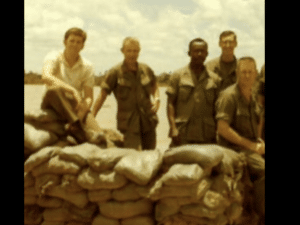
What is one lesson you’ve learned in leadership that others could benefit from?
The most important lesson of leadership that I learned while serving in Vietnam during the war is this: Don’t ask others who work for you to do anything that you don’t do yourself. Don’t expect your employees or team members to stay at the office until midnight if you are regularly going home at 5 p.m.
A second lesson is to make sure that your team members all understand your objectives. What are the specific goals you are endeavoring to achieve, and how are you trying to achieve them?
Finally, reward your employees by nominating them for awards such as the Business Record’s Forty Under 40. With a staff of only 10 persons, I succeeded in having seven individuals receive that recognition, plus one other named a “Woman of Influence.”
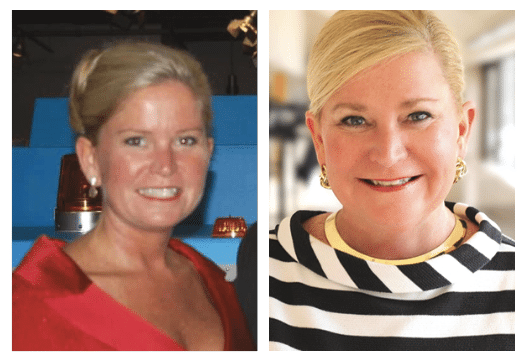
Mary Sellers
President, United Way of Central Iowa
Looking into the past, what contribution within the past four decades stands out to you for its positive impact in the metro?
I have to go back to the Capital City Vision Plan in the early 2000s. I believe that marked an important development for the metro. The major projects task force that prioritized what our community needed to focus on was pivotal. And today you have the Principal Riverwalk, the library, Wells Fargo Arena, the World Food Prize and the Science Center of Iowa. Beyond that, if you look at the development that has occurred as a result of those projects, it is immense.
The year is now 2040. What goal (project, initiative, area of focus) would you hope the community has accomplished?
As we head toward 2040, there are a lot of critical community issues that we’re best positioned to address today versus when we’re scheduled to be at roughly 1,000,000 population in 2040. My hope is that we have sufficient affordable housing, reduction in homelessness and youth violence, and that everyone in our community feels they have the opportunity to thrive.
What is one lesson you’ve learned in leadership that others could benefit from?
The one lesson I learned in leadership that I hope that others can benefit from is that it is not about you as an individual. It is about the role that you play, in the moment that you play it.
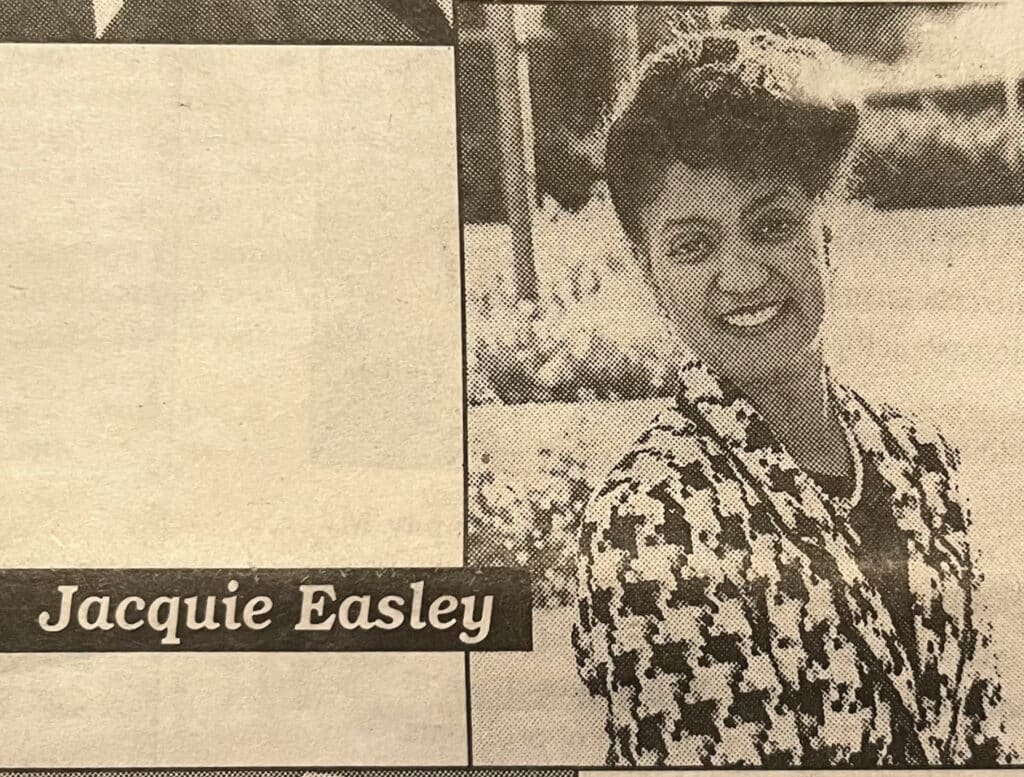
Jacquie Easley McGhee
Division director, health equity, diversity, and inclusion, MercyOne
Looking into the past, what contribution within the past four decades stands out to you for its positive impact in the metro?
When I began my work life on Sixth Avenue, (yes, I have worked for two organizations my entire career, both on Sixth Avenue) the street was home to aging buildings, transient residents and a bustling prostitution depot. Needless to say, the area was one of the least appealing sites for businesses or family homeowners.
Newly formed neighborhood associations River Bend and Cheatom Park were determined to reverse the downward spiral in the historic district. Their organizing efforts included prodding law enforcement to be more visible, persuading the city to improve services, urging landlords to take action on nuisance properties and advocating for a Sixth Avenue revitalization plan.
As a result of the combined efforts of all of the aforementioned, the 6th Avenue Corridor, an ambitious nonprofit organization that has a mission to coordinate commercial revitalization, was launched.
In 2009, the 6th Avenue Corridor was named an Urban Neighborhood Main Street program by the Iowa Economic Development Authority. Specific streetscape enhancements include lane reduction to calm traffic, widened sidewalks and a multimodal path to accommodate bicyclists. This year, we celebrated the groundbreaking of the Center at Sixth, an innovative project spearheaded by Marquas Ashworth, which will be a retail and restaurant development space designed specifically to meet the unique needs of Black, brown and other culturally diverse entrepreneurs.
I believe this collaboration of public and private, neighborhood and business, has resulted in a gem in the metro. I am proud to be a hardworking girl on Sixth Avenue!
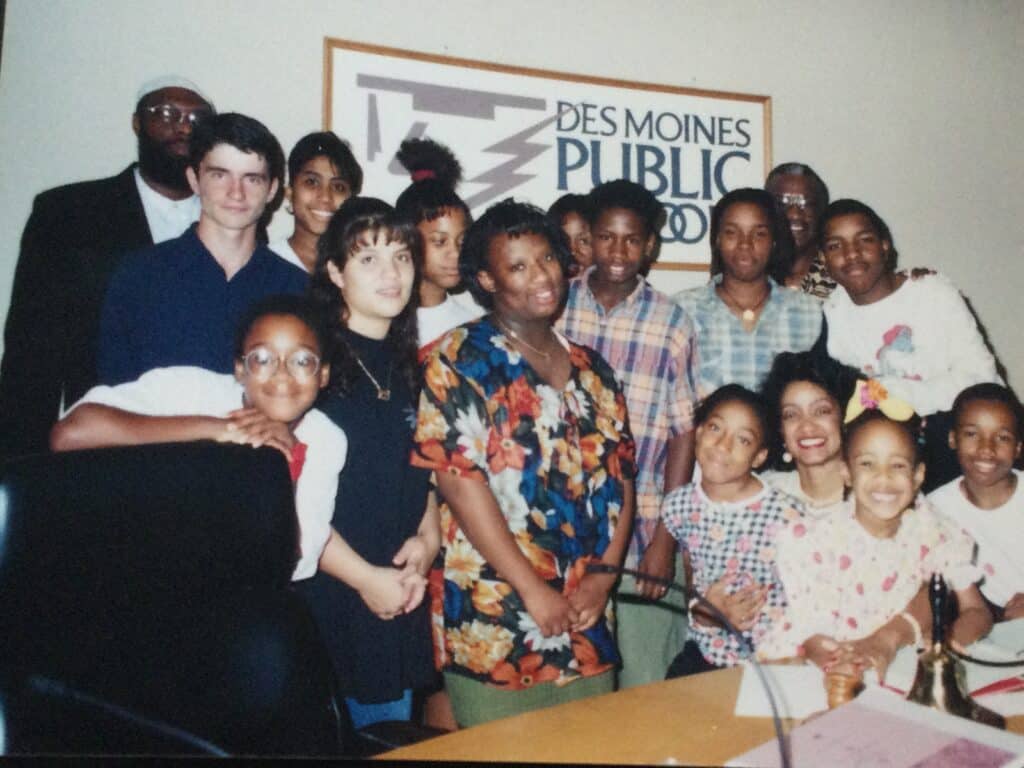
The year is now 2040. What goal (project, initiative, area of focus) would you hope the community has accomplished?
By 2040 (hopefully much sooner), our Safe and Thriving coalition goal (convened by United Way with many partners from law enforcement, in-the-trenches groups, education and health care leaders and nonprofit organizations, and city and county officials) of reducing youth violence – specifically gun interaction – has been achieved! As I said in the May 26, 2023, Business Record, “As Central Iowa continues to grow, addressing this issue becomes increasingly important.”
What is one lesson you’ve learned in leadership that others could benefit from?
My favorite African proverb provides the best advice and a lesson for all: “In a moment of crisis, the wise build bridges, and the foolish build dams.”
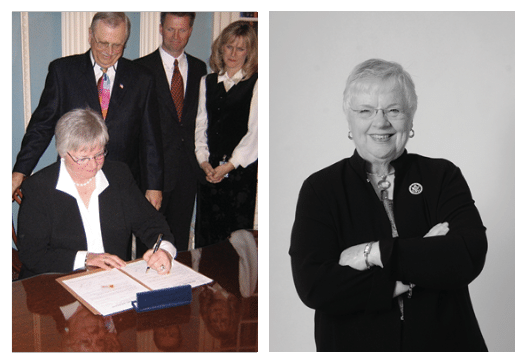
Mary Kramer
Ambassador (retired)
Looking into the past, what contribution within the past four decades stands out to you for its positive impact in the metro?
The building and programming of the Civic Center really jump-started the downtown renewal.
The year is now 2040. What goal (project, initiative, area of focus) would you hope the community has accomplished?
The water trails are complete and widely used. As a result, water quality has improved significantly.
What is one lesson you’ve learned in leadership that others could benefit from?
Be very clear with the expectations of productivity and performance. Be sure there is buy-in on the shared vision of the desired future. Give positive recognition at every opportunity.
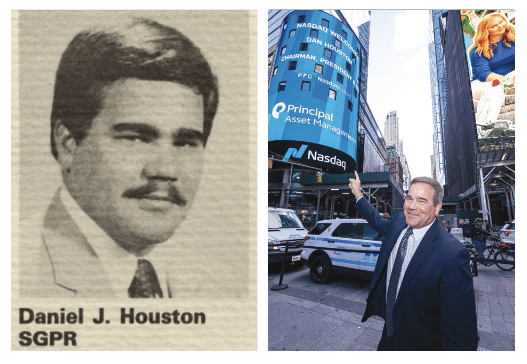
Dan Houston
Chairman, president and CEO, Principal Financial Group
Looking into the past, what contribution within the past four decades stands out to you for its positive impact in the metro?
In the early 1990s, architect Mario Gandelsonas created the Des Moines Vision Plan, with a goal of making the city more attractive to businesses, residents and visitors. His vision was clear: By enhancing Des Moines, the entire metro would be strengthened. It’s because of this plan that we are the vibrant, cosmopolitan community we are today.
Working in lockstep, the city and the private sector partnered to execute the plan. The list of accomplishments is remarkable: establishing Gateway West and Gateway East destinations; beautifying the route from the airport to downtown; adding downtown housing and attractions like the Science Center of Iowa, the downtown Des Moines Public Library location, the Pappajohn Higher Education Center, the Iowa Events Center, the Principal Riverwalk, Gray’s Lake and Kruidenier Trail; and many more.
Creating an inviting downtown in which to live, work and play has helped Des Moines attract businesses and residents, bigger and better cultural attractions, and a slew of notable recognitions on “Best Places to…” lists. We wouldn’t be here today without that original vision.
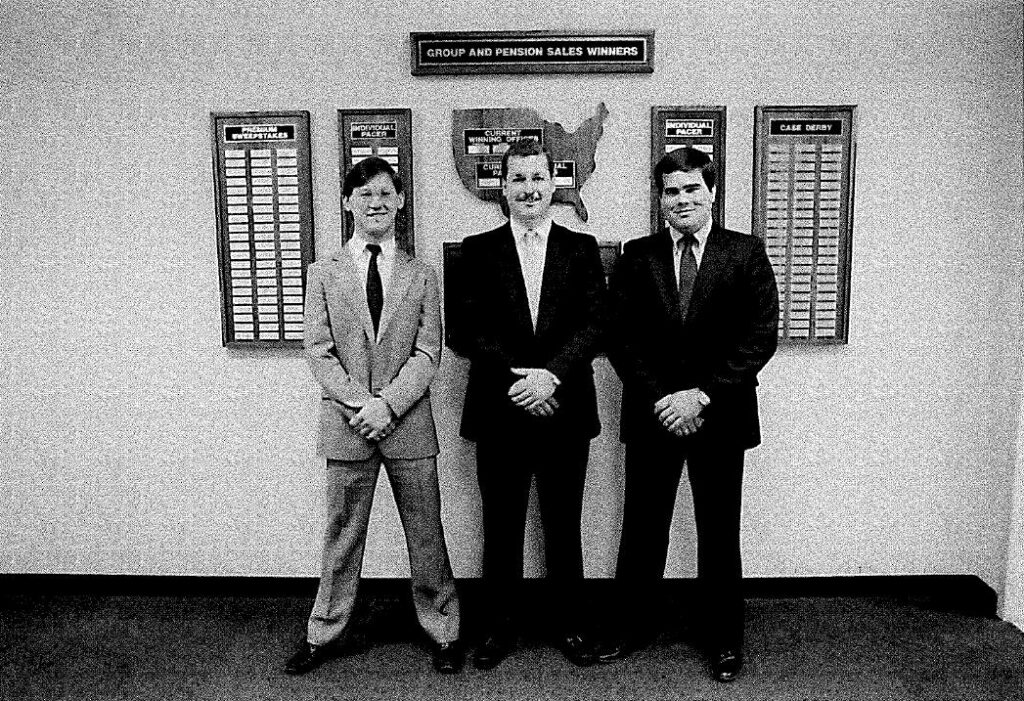
The year is now 2040. What goal (project, initiative, area of focus) would you hope the community has accomplished?
I hope we will have been truly successful protecting and embracing our environment. We’re so fortunate to live in an area with such easy access to nature, healthy air quality and diversified recreational options. It’s on all of us to keep it that way.
I’m impressed by the sustainability goals baked into PlanDSM and our vision for Des Moines in 2040, including items like reducing greenhouse gas emissions and achieving carbon-free electricity — a goal, I’m told, no other American city has committed to. If we want to protect the environment for future generations, we need bold goals. And we need to deliver on them.
We would also do well to rediscover the many wonderful natural resources around us. Improvements to our Central Iowa trails have connected hundreds of miles of trails for outdoor recreation. The Principal Riverwalk project challenged us to embrace the rivers that lie at the heart of Des Moines but had become largely ignored. And in my work with ICON Water Trails, we’re taking this to the next level, working to get more Iowans to celebrate and protect natural resources, transforming the relationship Iowans have with their waterways. I’m excited to think where we will be in 2040.
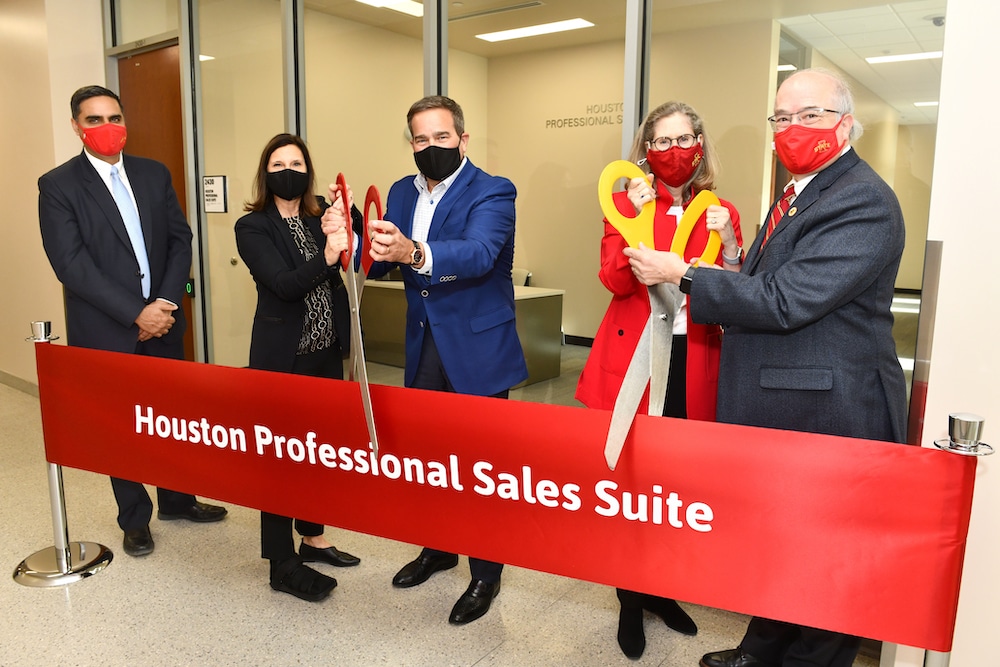
What is one lesson you’ve learned in leadership that others could benefit from?
Trust is everything. And it goes deeper than doing what you say you’re going to do. We are nothing without the trust of our customers. It’s the foundation for our success at Principal. That trust is earned over time, through consistent actions and follow-through.
But I believe real trust — transformative trust — goes beyond simply selling a product and following through on the sale and service as agreed. Going the extra step to put the information you have about your customers to work for them. Working to anticipate their needs and offering value-added insights, education and ideas. When customers see you advocating for them, based on understanding their specific goals and realities, they’ll go beyond trusting you to do what you agreed to do. They’ll begin to trust that you are a partner in their journey — looking out for them even when they’re not sitting right in front of you.
I learned this lesson while developing my career. And I experience it just as much now that I’m leading a global financial services company with more than 61,000 unique clients around the world.
With all key stakeholders: Trust is everything.
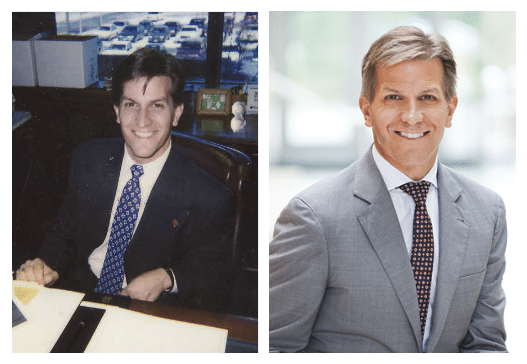
Kyle J. Krause
Founder and CEO, Krause Group
Looking into the past, what contribution within the past four decades stands out to you for its positive impact in the metro?
Lightness, simplicity and openness was how Pritzker Prize laureate Renzo Piano described the LEED-certified Krause Gateway Center – headquarters to Krause Group and its family of brands. The project, completed in 2018, was designed to create fresh connections, interactions and collisions within the space.
Within our six-floor building is a modern and highly collaborative work environment, art gallery with exhibitions curated from the Krause family’s art collection, and a rooftop garden covered with native prairie grass and flowers.
The Krause Gateway Center and surrounding plaza was intended to both complement and expand upon the beautiful John and Mary Pappajohn Sculpture Park, which features more than 30 works within the pedestrian-friendly park.
Our vision for the Western Gateway and future stadium district aims to expand connectivity, walkability and accessibility to nearby art, architecture, sports, entertainment and culture in our thriving community. Ultimately, this is about continuing to invest in a city that’s been good to us.
The year is now 2040. What goal (project, initiative, area of focus) would you hope the community has accomplished?
I hope to see the stadium district project complete and thriving.
In alignment with soccer’s growing popularity in the United States, the stadium district will bring the world’s sport to Central Iowa through its first professional men’s and women’s soccer teams. The women’s team will be the first pro sport in Iowa since the Cornets in the late 1970s. An inclusive mindset drives social impact and equality, making all feel welcome and supported, including our diverse and growing immigrant population.
The $500-plus million investment will have a profound impact on Iowa, galvanizing an economic surge and reinvigorating areas of downtown that have fallen into disuse. Additional recreation, housing and entertainment will make the Stadium District a destination attracting regional visitors and diverse community members, while making Des Moines a city where people want to live, work and play.
This project promotes a strong downtown and will help attract further economic development and spur job creation. In the first 20 years, these projects will drive $4.7 billion in direct spending, $995 million in indirect spending, $2.1 billion in induced spending, $2.3 billion in increased earnings, the creation of 6,500 construction jobs and the creation of 2,000-plus ongoing jobs/permanent positions.
What is one lesson you’ve learned in leadership that others could benefit from?
One invaluable lesson in leadership is recognizing the relationship between an important balancing act – heart and money. The heart: representing our purpose, mission, values and corporate social responsibility. The money: representing our business goals, resource allocation, profitability and value creation.
Understanding profitability and CSR can be complementary forces is key. Balancing these elements requires a convergence toward what Krause Group refers to as “doing good in the world.” Leveraging resources and capital creates positive change within our businesses and the broader communities we serve.
Profits are essential, but not at the expense of our values. I aspire to lead by prioritizing strategic and measurable business objectives in CSR – not because it is mandated, but because it is the right thing to do.
Effective leadership entails fostering a culture where associates understand the impact of their work beyond profit margins. Encouraging innovation that aligns with both financial and societal well-being cultivates associate engagement and a broader sense of purpose.
Ultimately, integrating financial acumen with a compassionate approach doesn’t force us to choose between profitability and CSR. Rather, it allows us to navigate a path forward where our brands will flourish, driving positive change while ensuring sustainable growth.
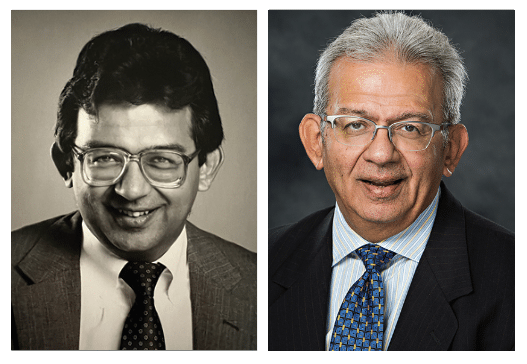
Suku Radia
Retired CEO, Bankers Trust Co.
Looking into the past, what contribution within the past four decades stands out to you for its positive impact in the metro?
Until the mid-1970s, downtown Des Moines was a ghost town. John Ruan announced the construction of a skyscraper, the Ruan Center. He did this with his own money, without assistance from any public authority. There were many who were skeptical of this endeavor. This was the real beginning of the renaissance of downtown Des Moines and it led to the construction of the Civic Center. The rest is history. John Ruan was a visionary.
The year is now 2040. What goal (project, initiative, area of focus) would you hope the community has accomplished?
First and foremost, downtown Des Moines needs a reset as a result of the “hangover” of the pandemic. This will help our restaurants and other entertainment venues become vibrant again. The streets are in disrepair and need to be fixed. The skywalk needs to be refurbished and secure. The business leadership has to make a commitment to mentor the next generation of up-and-comers so that they understand the importance of why the inner core has to flourish. We cannot dilute public education and we need to invest more in education to become a model for the rest of the country. This will all help us in attracting new business because our quality of life will stand out.
What is one lesson you’ve learned in leadership that others could benefit from?
When the Irish politician John Hume received the Nobel Peace Prize, he said, “Difference is an accident of birth, and it should therefore never be the source of hatred or conflict … therein lies a most fundamental principle of peace: respect for diversity.” I have always treated people with respect, and I have been a champion for diversity.
There is still much work to be done.
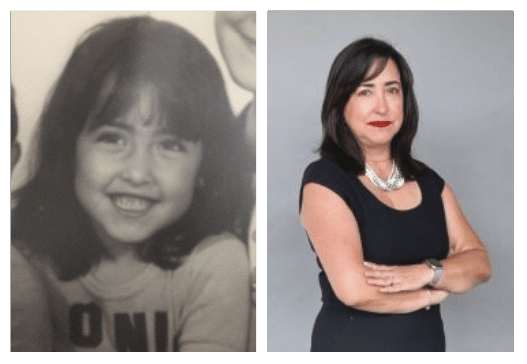
Sonia Parras
Senior attorney and founder, Law Office of Sonia Parras PLLC
Looking into the past, what contribution within the past four decades stands out to you for its positive impact in the metro?
One of the most impactful contributions within the past four decades that stands out to me is the establishment of the “Latinas Unidas por un Nuevo Amanecer” (LUNA) and the Latina Leadership Initiative of Greater Des Moines (LLI).
LUNA has been a catalyst for empowering Latina survivors of domestic violence, fostering grassroots community organizing, creating systemic changes and giving voice to women in the margins. The positive impact of this initiative extends beyond just survivors and new leaders; it has created a ripple effect of change, strengthening the entire metro area by fostering diverse leadership and building a more inclusive, resilient community that stands against domestic violence. Through LUNA, we’ve provided vital leadership training, mentorship and resources to countless Latina women, enabling them to rise as strong advocates for supporting leadership within their communities and for future generations of Latina women.
The companion standout contribution in the past four decades that holds immense positive impact in the metro is the establishment of LLI as well. These organizations have not only provided valuable mentorship and resources to immigrant women but have also broken down systemic barriers, allowing Latina professionals to thrive in various fields. The positive impact lies in the transformation of these women into leaders, role models and agents of change within the community. This has not only elevated the status of Latina professionals but has also enriched the entire metro area by embracing diversity, promoting equality and fostering a more inclusive, empowered society.
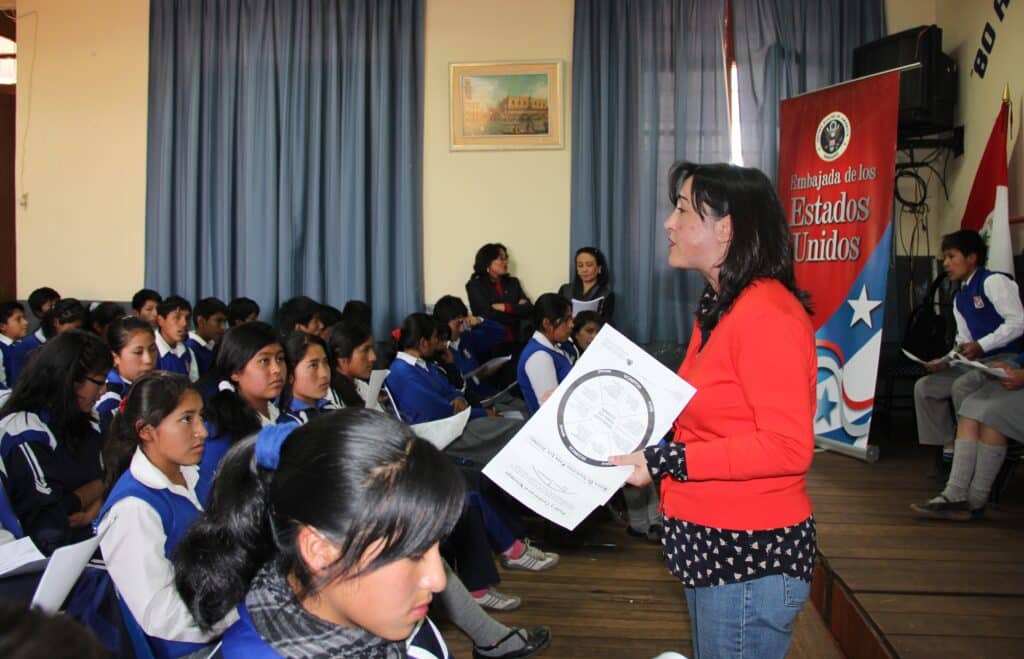
The year is now 2040. What goal (project, initiative, area of focus) would you hope the community has accomplished?
In 2040, I hope to see a world where the community has accomplished a truly transformative goal in the realm of women’s rights and leadership development. Our vision is a society where gender equality is not just a concept but a lived reality. We have successfully shattered the glass ceiling, and women from all backgrounds occupy leadership positions in every sector of society, from politics and business to science and the arts.
Our initiatives have fostered a culture of inclusivity, where women’s voices are not only heard but valued and respected. We have dismantled systemic barriers and achieved pay equity, ensuring that women have the same opportunities and rewards as their male counterparts.
Additionally, we have invested heavily in leadership development programs for women of all ages, nurturing their skills and confidence from an early age and providing ongoing support throughout their careers. In 2040, we celebrate a world where women lead, inspire and shape the future, where the journey to gender equality is not just a goal but a reality we all cherish and protect.
What is one lesson you’ve learned in leadership that others could benefit from?
One invaluable lesson I’ve learned in leadership that can benefit others is the power of resilience. Throughout my journey as an immigrant entrepreneurial woman leader in the realm of women’s rights and leadership development, I’ve faced numerous challenges and setbacks. There were times when progress seemed slow and obstacles felt insurmountable.
What I’ve come to realize is that resilience is not just about bouncing back from adversity; it’s also about the ability to adapt, learn and grow stronger through these experiences. In leadership, especially when advocating for women’s rights and fostering new leaders, perseverance in the face of adversity is key.
Leaders must be prepared to weather storms, maintain unwavering commitment to their mission and continuously evolve their strategies. Resilience allows us to turn setbacks into opportunities for growth and innovation, inspiring others with our determination. By embodying resilience, we not only overcome challenges but also serve as powerful role models for those we lead, showing them that resilience can fuel their own journeys toward success and positive change.
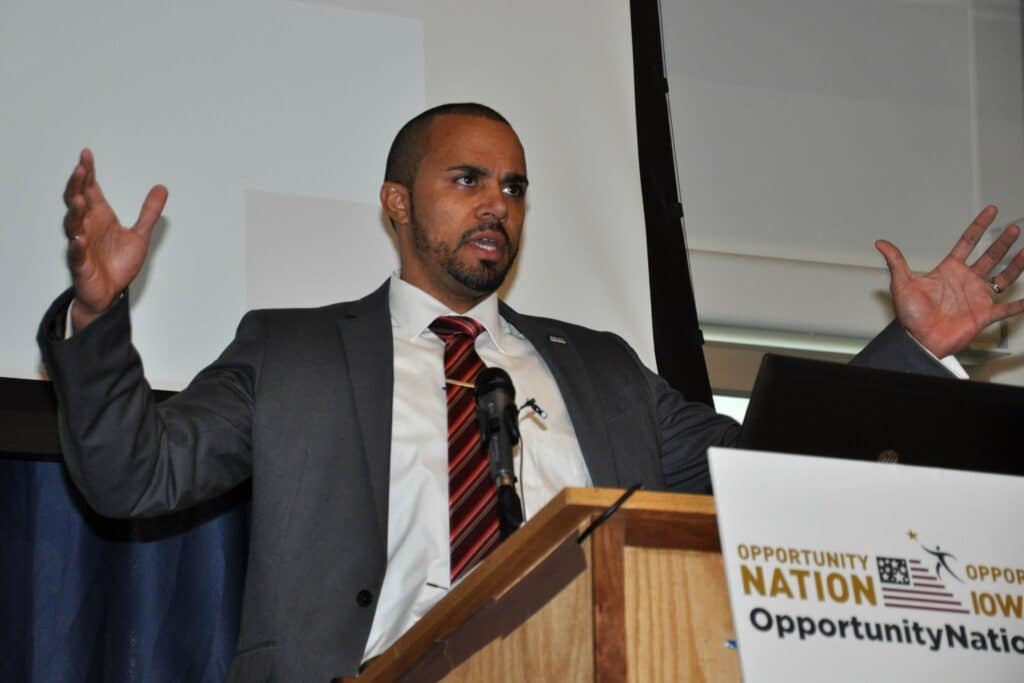
Izaah Knox
State senator; executive director, Urban Dreams
Looking into the past, what contribution within the past four decades stands out to you for its positive impact in the metro?
There are many, and I have only lived in DSM for 23 incredible years; however, one of the initiatives that our family uses the most is Riverview Park, the amphitheater and the inclusive playground. We love the easy access from the trail and the beautiful scenic route along the Des Moines River. Moreover, you can find us there almost every Friday night in the summer for Rendezvous on Riverview, enjoying live music, food, friends and our community.
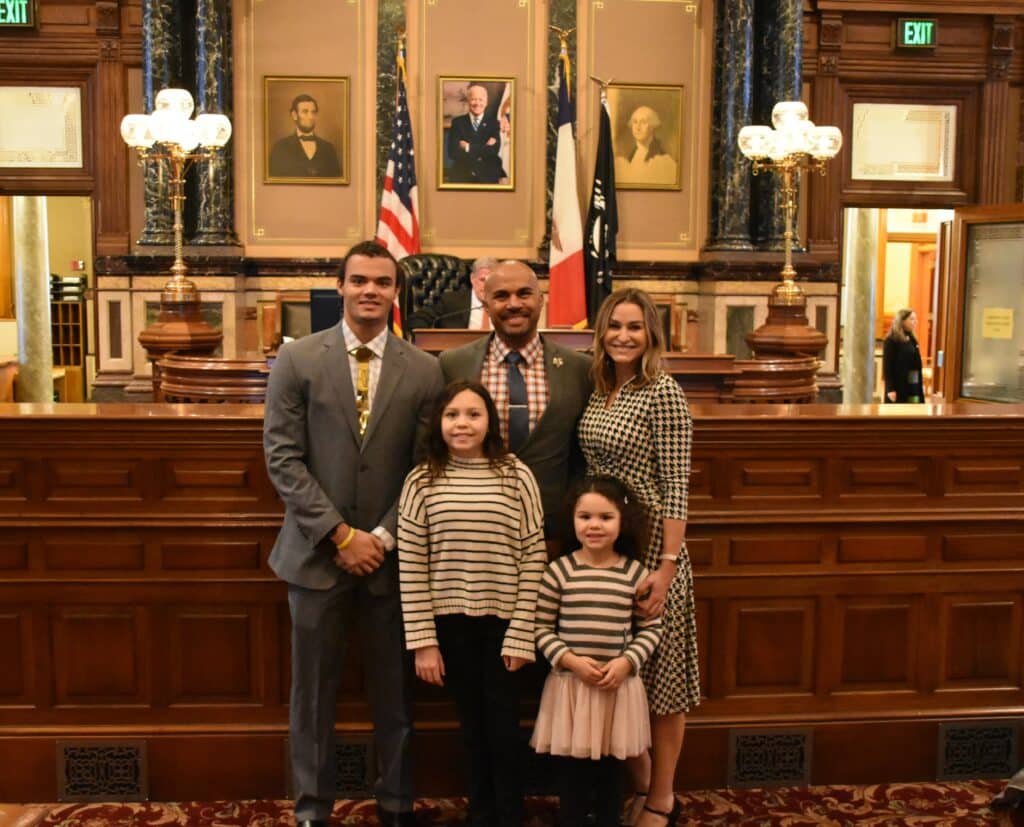
The year is now 2040. What goal (project, initiative, area of focus) would you hope the community has accomplished?
I have two here, and both of these initiatives will clean up and complete gaps in downtown Des Moines:
1. The Iowa Confluence Water Trails (ICON).
2. USL Pro Iowa soccer team, stadium and Global Plaza.
I live on the part of the Des Moines River that is included in the ICON Water Trails plan. We already enjoy the wildlife, recreation (including the Des Moines Rowing regatta), and beauty of the river, and the ICON project will complete and maximize the use of this great amenity.
Pro Iowa and the Global Plaza will eliminate the eyesore that connects the southwest side of Des Moines to downtown while bringing positive cultural entertainment and experiences for everyone to enjoy.
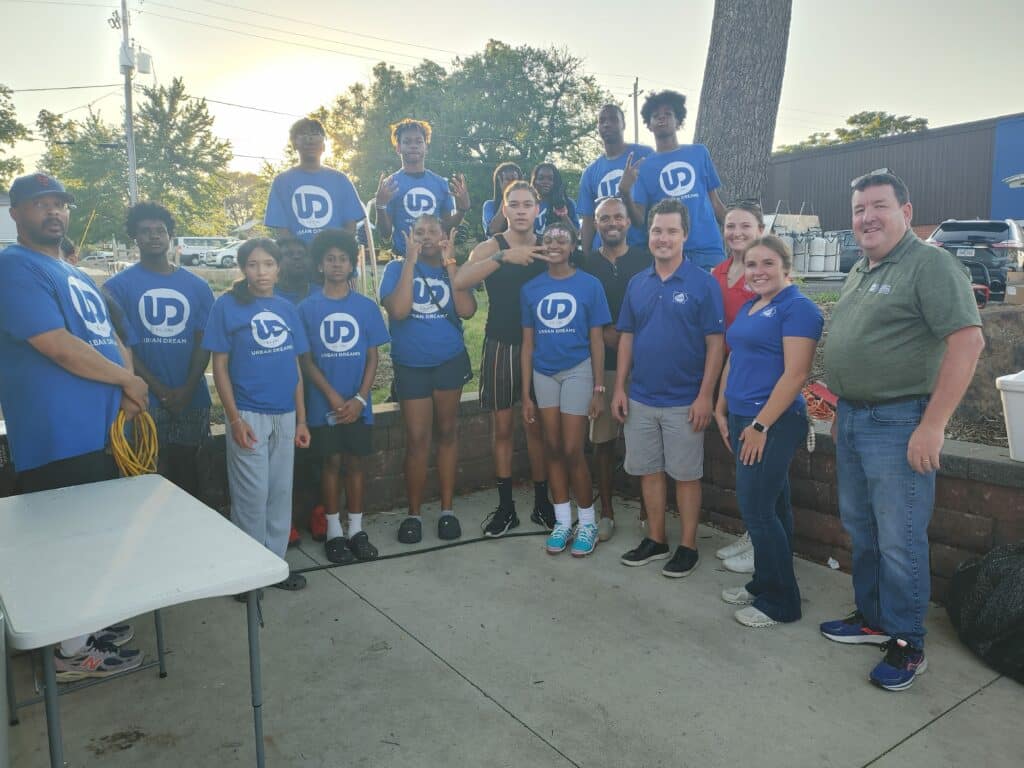
What is one lesson you’ve learned in leadership that others could benefit from?
Des Moines is a flat community. You can network with any CEO, president of a business or college, someone running for president of the United States of America, executive director, elected official, or other interesting and influential people throughout the year. And by showing up, showing out, listening and learning, all their success is obtainable by others.

Janice Lane Schroeder
CEO, Children & Families of Iowa
Looking into the past, what contribution within the past four decades stands out to you for its positive impact in the metro?
As I reminisce over the past 40 years and focus on the field of health and human services and its impact in the metro, I marvel at the challenges we’ve overcome, innovative strategies we’ve embarked upon, and the unique partnerships we’ve created to move families and children from feeling hopeless to becoming successful.
There will always be a need for services to support those in need. Over the past three years, we have all experienced the impact of trauma, loss, isolation and just plain fatigue due to the pandemic. We found out more about ourselves and what we needed to survive or just feel normal. Although the pandemic was devastating to all of us, it also created a pathway and heightened our awareness of mental health for both children and adults. Mental health challenges have no boundaries. It can touch anyone’s life regardless of age, gender, race, ethnicity, ability or socioeconomic status. As we continue to have these courageous conversations about mental health and the accessibility to services, we must maintain our momentum to advocate.
The year is now 2040. What goal (project, initiative, area of focus) would you hope the community has accomplished?
My dream for the year 2040 is that every child will have quality, affordable child care. This would include correctly compensating child care staff. Needed enhancements would include exposure to the arts, access to mental health resources and STEM. Securing child care is the top priority for families living in Iowa.
What is one lesson you’ve learned in leadership that others could benefit from?
I have learned many lessons throughout my career. One lesson that has been the most impactful was best stated in a quote by Maya Angelou: “I’ve learned that people will forget what you said, people will forget what you did, but people will never forget how you made them feel.”
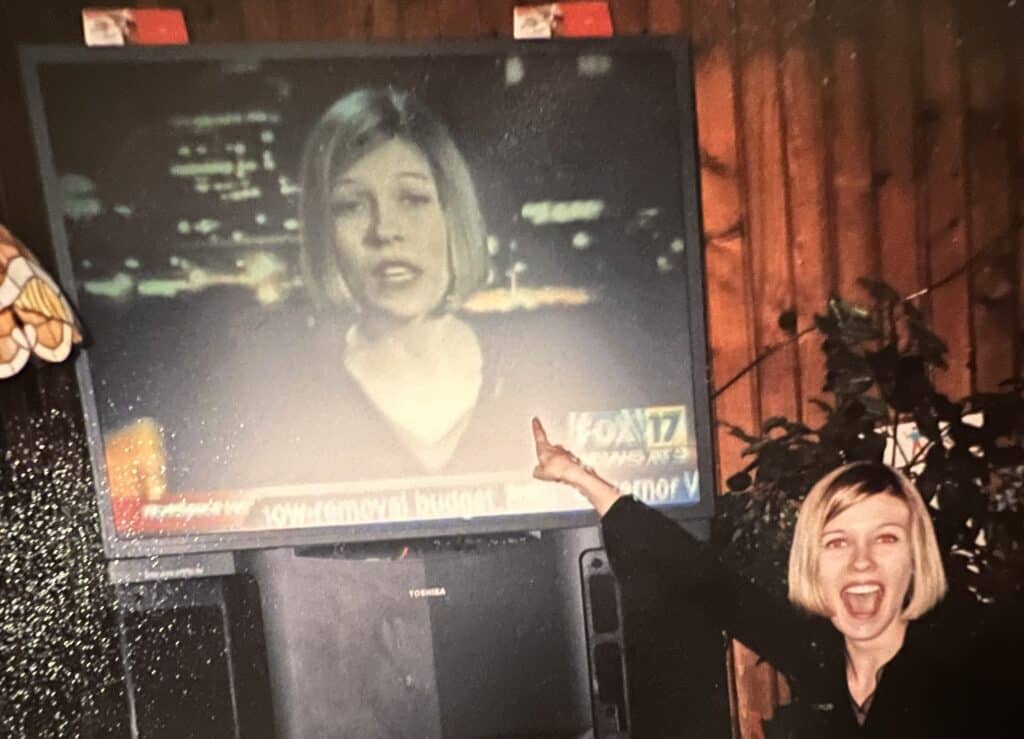
Tiffany Tauscheck
President and CEO, Greater Des Moines Partnership
Looking into the past, what contribution within the past four decades stands out to you for its positive impact in the metro?
The spirit of regional collaboration has made a significant impact on the growth and success of Greater Des Moines over the past several decades. Greater Des Moines is the fastest-growing region in the Midwest in percentage of population, employment and gross domestic product growth, and is routinely recognized nationally as a top place to live and work. There have been several major projects that have come to fruition to make our region a premiere economic development and talent development destination. This success happens in large part because we work together as one region with one voice, as public, private and nonprofit partners.
The year is now 2040. What goal (project, initiative, area of focus) would you hope the community has accomplished?
There are many projects in the works across our 11-county region that have the potential to transform local communities and the region as a whole, and we look forward to collaborating with partners to support the completion of these projects. One project that has been identified as the top priority for our investors is the Des Moines International Airport’s new terminal project. This project will enhance our economic development and talent attraction efforts, making DSM even more attractive for business expansion and relocation projects as well as current and prospective residents.
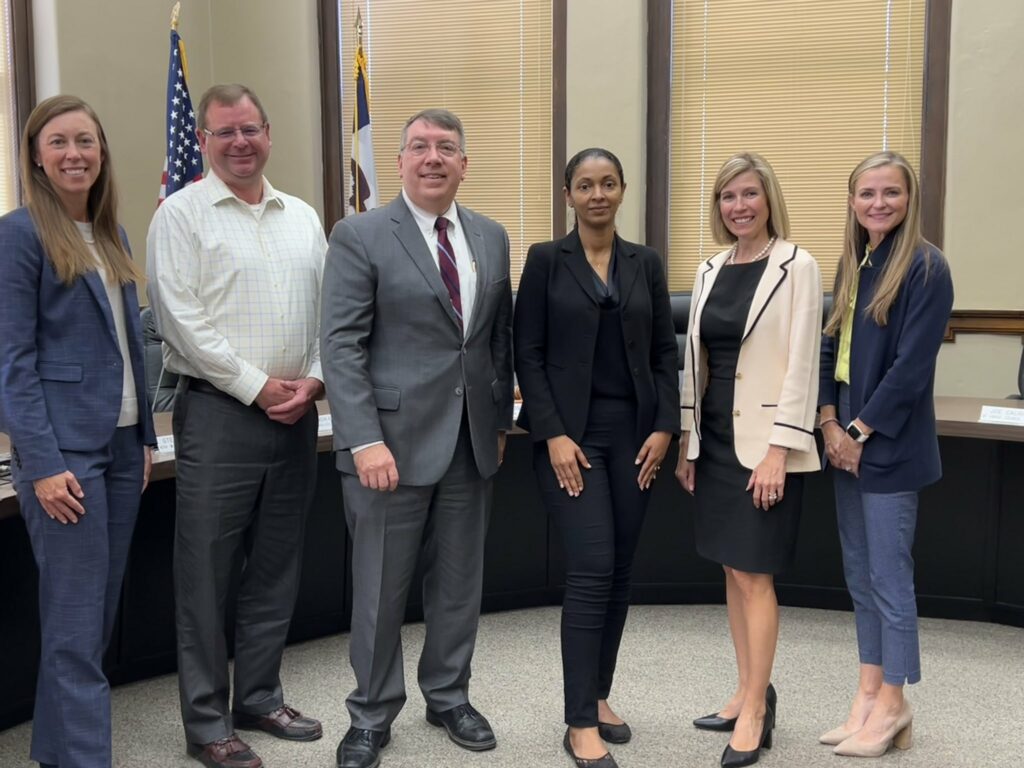
What is one lesson you’ve learned in leadership that others could benefit from?
It is important to have a strong team internally and a support network externally. People look to leaders for direction on decisions and challenges that we may not have faced before. Chances are, others have had similar experiences to navigate, and leaders in our community are willing to help each other. It just takes the willingness to be vulnerable and ask for help.
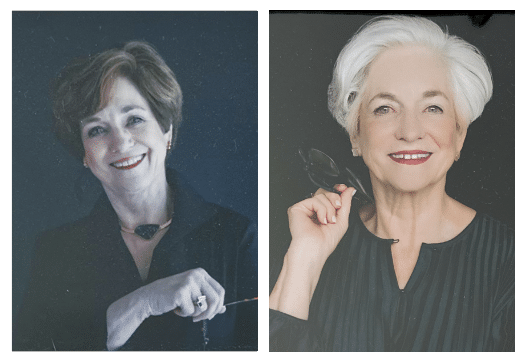
Cyril Mandelbaum
Retired CPA
Looking into the past, what contribution within the past four decades stands out to you for its positive impact in the metro?
I think there are several contributions over the past four decades including the skywalk system, the Pappajohn Sculpture Garden and Mainframe Studios.
The year is now 2040. What goal (project, initiative, area of focus) would you hope the community has accomplished?
I hope that new progressive leadership would help downtown attract more people to live and create new opportunities in the downtown area.
What is one lesson you’ve learned in leadership that others could benefit from?
I have learned that being fearless and becoming an entrepreneur in my field was very rewarding. Also becoming a mentor to others is a way of sharing my knowledge and helping others.

Emily Barske Wood
Emily Wood is special projects editor at Business Record. She covers nonprofits and philanthropy, HR and leadership, and diversity, equity and inclusion.


